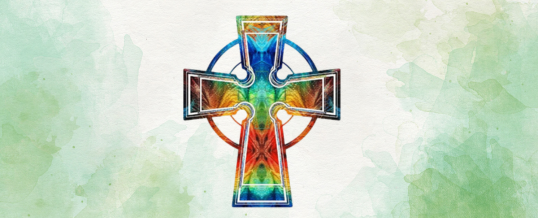
A few years ago, someone close to me learned through DNA testing that one of the parents who raised her was not a biological parent. This sent waves of shock through her family, in part because half her DNA was from an entirely different race of people with a different language and culture. “Your ancestry DNA certainly sounds more interesting than mine,” was my response, which I now know was cavalier, given the personal and emotional upheavel she was experiencing. This news was shocking mostly I think because at the age of 65, she learned her identity was different than what she had known her entire life. In one sense, this did not matter because to me she was the same human being I had known and loved my entire life. Nothing had changed. But if you were to ask her, she would have told you that everything had changed because with all possible parents dead by then, she was left with unanswered questions about the story of her family. If you have submitted your DNA for analysis to one of the many organizations offering the service, you are granted access to a list of thousands of people from around the world who have submitted their own DNA for analaysis and with whom you share DNA. You can easily communicate with these people via email or other messaging service, so reaching out and attempting to forge relationships with her newly found biological family played an important part of my friend’s life. A life-long Christian woman who loved her family and all of Creation, she would never have said she hated her life. At the same time I admired the courage it took for her to step away from what she had known into the completely new and unknown territory of meeting relatives from a different walk of life.
My DNA story is fairly typical of someone born in Atlantic Canada in the early 1970s; mostly French and other assorted European. My mother was a LeBlanc with connections to the Bourque, Richard, and Bourgeous families, among other familiar names. My father was a Droesbeck, whose grandfather immigrated to Canada from Belgium but had strong German connections. After I submitted my own DNA for analysis the greatest surprise has been that 19% of my DNA was Irish. “Oh Danny Boy!” I could celebrate St. Patrick’s Day like a real Irish person at O’Donahue’s in Miramichi. To be honest most of what I knew about Ireland involved St. Patrick, Angela’s Ashes, and the (1991) film The Commitments (which you should really watch by the way).
I was reminded of a time several years prior when one of my Theology professors returned to me my final paper for the course with the comment, “You have a Celtic soul.” I had not heard of such a thing before, and at the time I did not understand what she meant, but it sounded kind of interesting to me, maybe something to do with wind instruments.
According to U.S. Catholic,
Celtic pre-Christian culture, dating back to 500 B.C.E., permeated the land, and these beliefs also strongly influenced Celtic spiritual practices. As a result, much of Celtic Christianity can be characterized by a strongly incarnational theology: The natural world, in particular, reveals the sacramentality of all creation. Matter is infused with the divine presence and offers glimpses of the world behind the surface of things. This spirituality celebrates the human imagination, cultivating creativity through various art forms such as manuscript illumination and vibrant metalwork.
As I read about Celtic spirituality and Celtic Christianity, I noticed some of its characteristics (dreams, landscapes, water, solitutude, silence, seasonal cycles, etc.) echoed strongly through my own personal spirituality, and inform how I (try to) live out my faith despite my Germanic surname.
So on this Feast of St. Patrick when we are all a little Irish, may the road rise up to meet you. May the wind be always at your back. May the sun shine warm upon your face; the rains fall soft upon your fields and until we meet again, may God hold you in the palm of His hand.
Beannachtaí na Féile Pádraig oraibh!
Trevor Droesbeck,
Office for Evangelization and Catechesis
Archdiocese of Moncton
MAR
2024

About the Author: